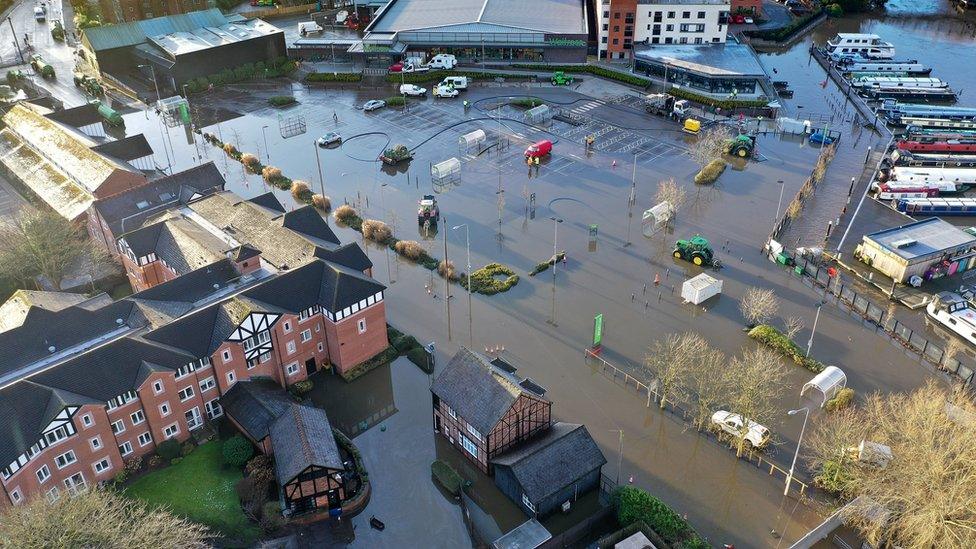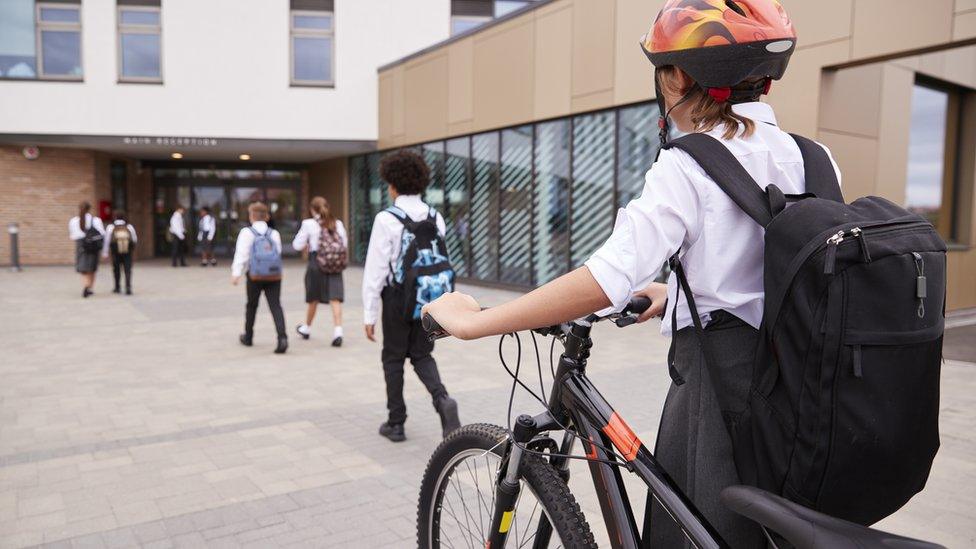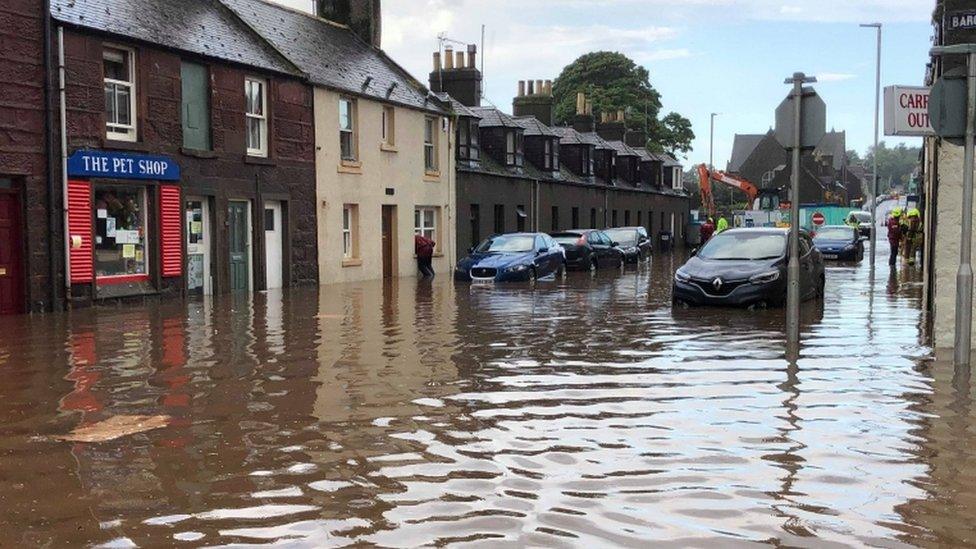Millions of Brits vulnerable to floods or extreme heat
- Published
- comments

The flooded town of Northwich in Cheshire in the aftermath of Storm Christoph on 22 January
The health of more than 12 million people in the UK - equivalent to the populations of Greater London and Greater Manchester combined - is vulnerable to the impacts of major floods or extreme heatwaves caused by climate change.
It's according to a new report from the Climate Coalition, whose members include National Trust, WWF, Women's Institute, Oxfam and RSPB.
They say the severe health issues related to the climate and nature crisis are a reminder of the need to dramatically reduce our greenhouse gas emissions and reach a zero carbon economy.
Prime Minister Boris Johnson says the UK's aim is to cut carbon emissions by at least 68% in the next 10 years. By 2050, The UK is aiming to bring all greenhouse gas emissions to net zero.
Why are floods and heatwaves happening more frequently?
WATCH: Why is climate change a problem? (2018)
Climate change is creating more extreme weather, including sea-levels rising, droughts, melting ice caps, wildfires and increased floods.
The damaging impacts of the climate crisis are increasing around the world and that includes the UK too.
The report found that approximately 1.8 million people in the UK are living in areas at significant risk of flooding - a number which could increase to 2.6 million in 17 years.
Just under 12 million people in the UK are also dangerously vulnerable to future summer heatwaves, particularly the elderly or people with pre-existing health conditions such as diabetes or heart disease.
In the UK, heat-related deaths in people older than 65 years increased by 21% between 2004 and 2018.
WATCH: What is happening with the weather?! (August, 2020)
The series of UK heatwaves in 2018 were made 30 times more likely by climate change, and led to 8,500 heat-related deaths in the UK.
In 2020, the UK experienced 16 'tropical nights' where the temperature remained above 20C - previously rare but harmful conditions in the UK.
And in January, 167 flood warnings were issued across England and Wales as a result of Storm Christoph.
Tanya Steele, Chief Executive at WWF, said: "Nature - our life support system - is in freefall, and the climate crisis is making blazing heatwaves and major flood events more frequent and more likely."
She is calling on "the UK Government [to] take more ambitious steps to reach our net zero targets and put nature on the path to recovery."
What impact does an extreme climate event have on people?
WATCH: Tobi tells us how he has been affected by the Doncaster floods (November 2019)
Flooding has a devastating impact on communities and is one of the UK's biggest climate threats.
As well as the risk of death and injury, floods are also deeply traumatic for those affected.
Almost one in three people have reported suffering from Post Traumatic Stress Disorder (PTSD) after having their house flooded. PTSD is a mental health condition caused by very stressful, frightening or distressing events.
The report found that flood victims are four times more likely to suffer mental health issues, including depression, anxiety or PTSD than those unaffected by flooding.
Failure to...address the climate and ecological crises will spell disaster not only for our natural world, but for public health.
What can be done to help?

The Climate Coalition says tackling the climate crisis will also improve our health, creating cleaner air, improved wellbeing and reducing the pressure on the NHS.
They say that if just a quarter of the population in England cycled regularly and there was widespread use of electric bikes, all-cause mortality (total deaths from any cause) could fall by 11%.
Scarlett McNally, Consultant Orthopaedic Surgeon, and Council Member of the UK Health Alliance on Climate Change, said: "Exercise is a miracle cure for health, and it should be recognised as the same for the climate. Active travel (like walking and cycling) is a ready-made - and essential - climate and health improvement solution."
In England, 56% of car journeys are under five miles, so if we cycled to work or school instead it would not only reduce our emissions but would keep us fit and healthy too! Win, win!
- Published13 August 2020

- Published14 September 2020

- Published28 April 2020

